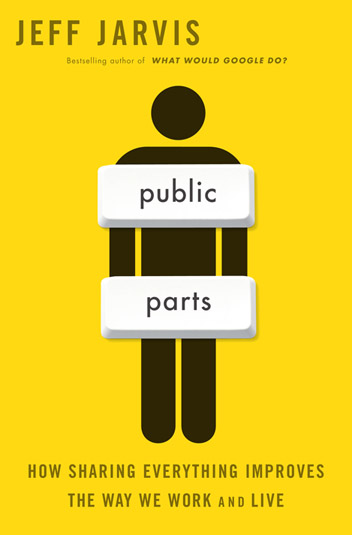
But if not… This is a very, very, very optimistic book on the sharing potentialities on the internet. It is so positive that it is sweeter (saccharine?) than the bowl of porridge Goldilocks wouldn’t eat. We’ll soon be reviewing two other recent books way, way down the other end of the scale on the dangers of the internetz to balance things out.
But while I was reading this book, I kept thinking — how can this book ignore the negative aspects of online culture — fraud, stalking, the inability to leave one’s past (and past relationships) behind, creation of support structures for severely negative behaviors — surely these would at least be mentioned. Some are, briefly, but in a mildly dismissive way. After describing the least effective way of describing privacy as avoiding things that are “creepy”, he then recommends an “ethic of publicness” that has as part of its first point:
If you have information that could in any way be valuable to others, you must ask yourself: Why not share it?
And there is the creepy! I really do not think that Jarvis’ point was to show all of the privileges in his invisible knapsack, but after seeing and hearing about (and experiencing some of) the horribles that happen to women and people of difference online, his extreme naïveté is bordering on thoughtlessness. I am glad that Jarvis can be positive enough to think that online culture can be super-awesome, but is
what needs to change is not so much our behavior, our rules, or technology but our norms: how we operate as a society and interact with one another[?]
It’s good we live in a world where Jarvis feels comfortable enough sharing his cancer treatment with the world. But there are plenty of people who do not want or seek out that degree of openness — and are hurt with the consequences.
One final note — Jarvis says that when one shares a secret with a friend and it gets out, the problem is with the friend, not the technology. But anyone who has accidentally received a stray text meant for another knows that while people may make mistakes, technology sometimes makes that mistake spread further and remain permanent.
The takeaway: Read this book if you want a well-written cheerleadingly positive view of the internet.


I am curious about whether some of his attitude comes of being, well, male. And is he old enough to have come of age pre-2001?
Having been a teenage girl sharing stuff on the web I am glad that some of that only exists buried somewhere in the Internet Archive. As you indicate, without that perspective you can’t be dismissive of it.